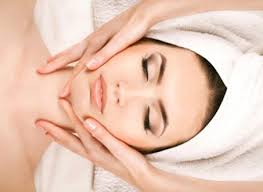A recently restored program at Riverside City College aims to make students skin care experts.
Esthetician classes, which train people to become skin care and make-up specialists, are back as part of the school’s cosmetology department after a roughly six-year absence.
An infusion of state dollars for career technical education helped the college reinstate the program, which was dropped amid budget cuts during the Great Recession.
“It’s one of the biggest industries in terms of job growth in the cosmetology area,” said Peter Westbrook, who heads the school’s cosmetology department. “It was disappointing because we had to turn away many students over the years.”
He said inquiries from people interested in skin care classes soared last year after Marinello Schools of Beauty closed all 56 of its campuses, including 39 in California. In the Inland area, Marinello had schools in Moreno Valley, Hemet, Temecula, San Bernardino and Ontario. The U.S. Department of Education said the for-profit cosmetology school was improperly allocating federal student aid money.
“We did receive some students that were displaced by that closure,” Westbrook said.
Breanna Richardson is among the 26 students taking classes that started in March. They must finish two nine-week courses, held eight hours a day Monday through Friday, before they can take a state exam to become licensed estheticians. Students must complete at least 600 hours of theory and practical training with a minimum 2.0 Grade Point Average.
“Everything is so fast,” said Richardson, a 21-year-old Beaumont resident who is a manager at Taco Bell and wants to work in waxing. “For someone who doesn’t have a lot of time like me, it’s great.”
Riverside City College spent some of the $2.9 million it received in the 2016-17 budget from the community college system’s Strong Workforce Program to buy equipment to provide advanced skin care treatments, Westbrook said.
Students practice the latest techniques using a wet dry microdermabrasion machine, which removes excess layers of dead skin. They also do microcurrent treatments to stimulate face and neck muscles. Chemical exfoliation, chemical peels and LED light therapy help with acne, aging skin and other problems.
“These type of treatments help treat the concerns that people have with their skin, not just cover them up,” said Madeline Bettencourt, a skin care and cosmetology instructor. “With the correct product use at home, the turnaround time for results is a lot faster.”
Students also get a theoretical foundation that includes learning about disinfecting, sanitation, product ingredients, skin disorders and diseases, as well as anatomy and physiology. They also learn how to write resumes, apply for jobs and run their own businesses. Students can start working on clients about six weeks into the program after practicing on each other.
The school hopes to grow enrollment to about 100 or more students a year — the approximate number when the program was halted, he said.
Demand will continue rising as more men, older people and younger clients seek skin care services, he said.
Katelynn Hand wants to pursue a business degree after finishing the 18-week program. She enjoys doing facials and hair removal and looks forward to opening her own salon.
“It’s fun for me when I give them tips and advice on what they can do better,” said Hand, an 18-year Yucaipa resident. “I like helping people and making them feel good about themselves.”


 Esthetician program at Riverside City College
Esthetician program at Riverside City College